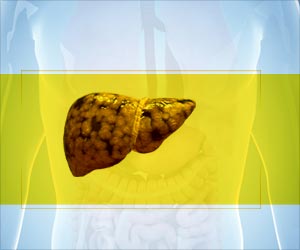The genetic risk scores developed was found to be helpful in preventing and treating alcohol addiction.

The impact of receiving polygenic risk scores for alcohol use disorder on psychological distress, risk perception, and intentions to reduce drinking
Go to source). Investigators recruited 325 college students, provided them with varying levels of information about alcohol use disorder and how genetics affect addiction risk and asked them how they would react to learning they had high, medium and low genetic tendencies toward alcoholism.
Genetics and Alcoholism
The results provided two significant supports for eventually using real genetic risk scores in actual addiction prevention efforts. First, participants understood what those scores indicated; they recognized that higher genetic risk scores meant a higher likelihood of developing alcohol problems. Second, most participants said they would drink less and take other steps to prevent addiction if actual scores showed high risk.‘People with alcohol abuse were found to experience moderate distress if they learned they were at increased genetic risk for addiction.’





“There are a lot of steps between the discovery of addiction-related genes and the effective use of genetic information in prevention and treatment,” said Danielle Dick, director of the Rutgers Addiction Research Center and senior author of the study published in the American Journal of Medical Genetics. “This trial paves the way for studies using real genetic data and for integrating genetic information into prevention and intervention efforts.” Adoption and twin studies indicate addiction risk is roughly half genetic, Dick said, but there’s no single addiction gene that’s either present or absent. Instead, there are thousands of interacting genes, so each person’s genetic risk falls somewhere on a continuum.
Risk isn’t distributed evenly along that continuum: It’s distributed in a bell curve. A small number of people have high or low genetic risk (at the tail ends of the curve), but most people fall in the middle of the curve, she said. Knowing one’s level of genetic risk can help people make the best choices for their health and well-being. Individuals at higher genetic risk are more likely to develop problems with alcohol use, so they can take precautionary steps with their substance use.
Despite the relative complexity of the risk calculation, study participants formed relatively accurate impressions of the risk for addiction associated with various genetic results. Future research will investigate whether other populations understand risk scores as well as the college students in this trial.
This suggests that providers should be mindful of how to return high-risk genetic results and consider accompanying this information with counseling. Encouragingly, as individuals received increasing levels of genetic risk, they also reported greater intentions to seek additional information, such as talking with a healthcare provider and engaging in harm reduction practices.
Advertisement
Dick emphasized we still know little about how real-world genetic information will affect real-world behavior. Most known addiction genes were discovered in the past few years, and many more remain to be discovered. No commercial genetic testing service provides information about addiction risk, so very few people have ever received genuine information about their genetic tendency toward addiction. What’s more, stated intentions often differ from subsequent actions.
Reference:
- The impact of receiving polygenic risk scores for alcohol use disorder on psychological distress, risk perception, and intentions to reduce drinking - (https://onlinelibrary.wiley.com/doi/10.1002/ajmg.b.32933)
Source-Eurekalert















